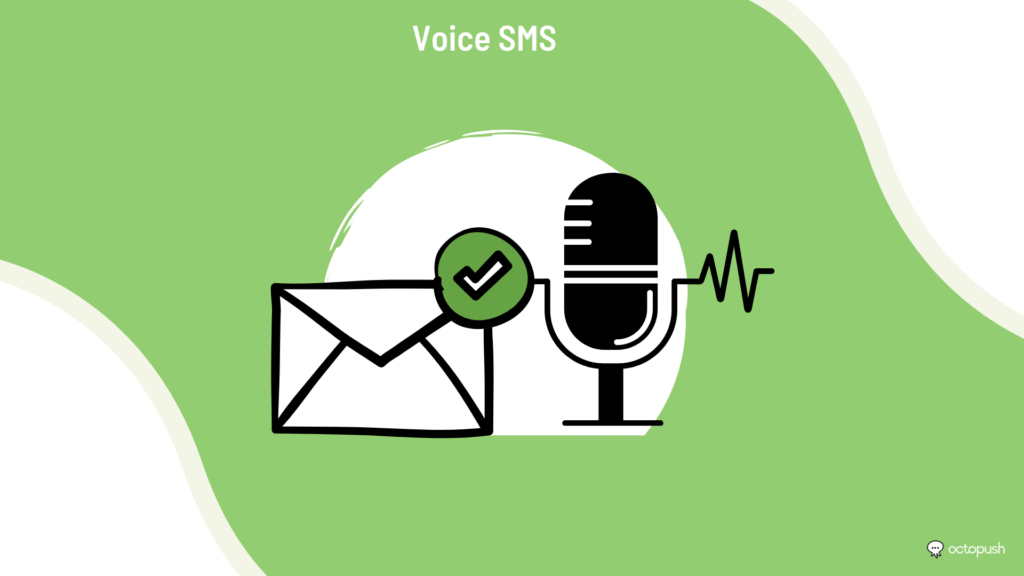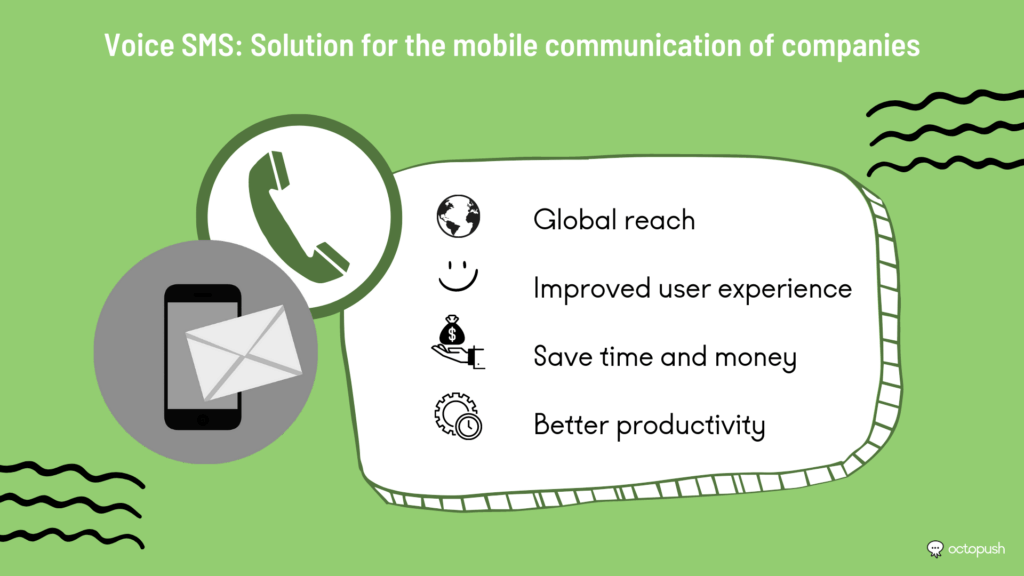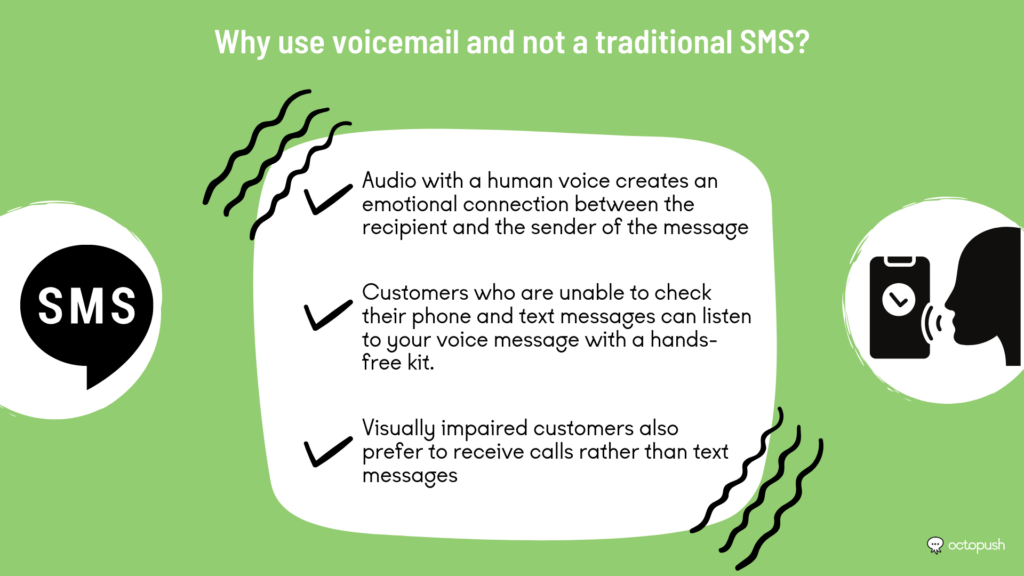What is a voice SMS?
A voice SMS is a text message that a service transforms into audio using text-to-speech.
To send a voice message, the sender must first type it in the manner of a traditional SMS, and then send it to the end user in the form of a traditional phone call.

Are voice messages audio recordings?
Many people mistakenly think that they are voice recordings, as offered by the communication applications Viber, Whatsapp and Facebook Messenger. In reality, they are short audio messages transmitted over an Internet or mobile broadband connection.
A voice message is not an audio recording of the sender: it is a totally different service that communicates an audio message via the mobile network.
What is the difference between voice message and voice input?
Voice typing is another service that is often confused with voice messages, but they are totally incompatible. Voice input, also known as voice dictation, converts voice into text, and uses voice recognition methods to create a written message. As a result, the recipient receives a text message.
A voice message, on the other hand, works in reverse: the sender types the message and the recipient receives a voice message created by a voice synthesizer.
What is the difference between a voice SMS and a call?
Voice SMS messages are not calls because they work only in a one-way way: the receiver of the call cannot answer it.
In addition, a message is charged per unit and not per second, as is the case for a call.
What are the advantages of voice SMS for users?
Voice messages allow people with reading difficulties to better understand the information you are conveying. Text-to-speech technology can also benefit people who are visually impaired or illiterate.
For those who often multitask, listening to a message allows them to perform different physical tasks simultaneously. By pairing their Bluetooth-enabled cell phone, they can cook, clean, exercise, and even drive at the same time as they listen to your voice message.
Voice SMS, a solution for mobile business communication
Businesses can also benefit from using voice messages to communicate with their customers and employees.
Global reach: Like SMS, voice messages can be sent to people all over the world.

Improved user experience: Using audio can minimize employee workload. This can be achieved while providing personalized services, reducing operational costs and increasing sales.
Save time and money: Businesses can save time and money. This is because voicemail solutions can be easily activated and require little maintenance. They are an ideal option for developers when creating Interactive Voice Response (IVR) servers.
Audio recordings require recording each message with a human voice. Instead, the voice message can be generated dynamically from a text message. This method reduces production time and eliminates the need to record audio files with human voices.
Increased productivity: E-learning professionals and human resources departments can prepare learning modules. They can train employees to use tools and materials anywhere, anytime. All this while multitasking.
Why use voicemail and not a traditional SMS?
Audio with a human voice creates an emotional connection between the recipient and the sender of the message.
Customers who are unable to check their phone and text messages can listen to your voice message with a hands-free kit.
Visually impaired customers also prefer to receive calls rather than text messages.
Voicemail can be used to notify people when a message arrives. This allows companies to have a 100% reception rate. Indeed, audio messages are most often used for transactional purposes.
Thanks to audio calls, there is more privacy. An advantage that considerably prevents someone from looking over your shoulder.
Why use voicemail and not audio recordings?
Audio recordings require some effort to set up. You need a good quality microphone and a secluded place to make the recording. Not to mention the need for a professional voice-over, whereas creating a voice SMS can be done from a computer connected to the Internet.

The transmission of audio recordings is most often done via an internet connection. To receive the messages, the receiver must connect to the Internet.
The receiver’s device keeps track of the audio recordings received. This means that the information they contain is vulnerable and can be downloaded. In contrast, a voice SMS is unique and once the receiver hangs up, the message is not retained.
Our other resources
- How to send a voice message by SMS ?
- How to send a voice message ?
- How to send a voice SMS with Octopush ?
- How to send an audio message by SMS ?
- How to make a voice SMS ?
- Send a voice messages by SMS : a solution for A2F
- Different solutions to send a voice message
- Send a voice text to people without cell phones
- How to send a voice message without calling ?
- SMS audio price : pricing per voice message
- Voice marketing : what challenges for companies ?
- Voice message on cell phone : what uses ?
- Voice message and their uses in business
- Voice SMS reader : your message read aloud
